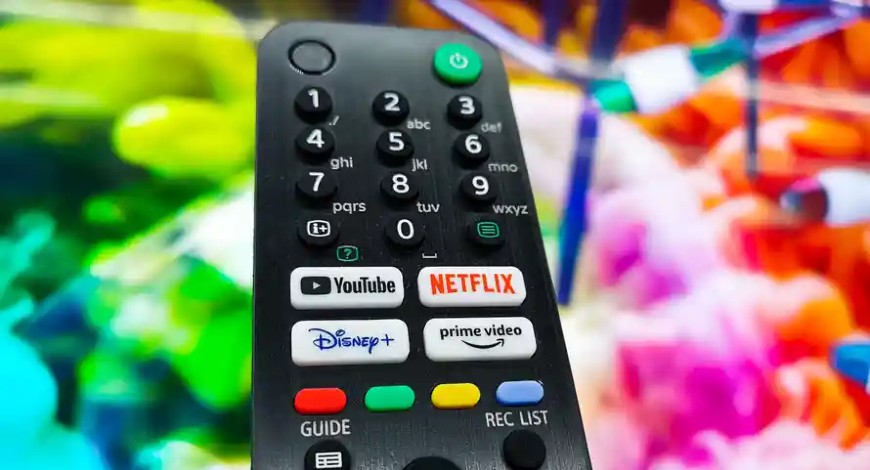Trends
Golden age of streaming could cost viewers up to £2,500 a year

Viewers are living in a golden age of TV, spoilt by more must-watch shows, films and live sport than at any time in broadcasting history, but the cost of getting it all has risen to £2,500 a year, leaving some entertainment fans wondering if they can afford the streaming revolution.
The global streaming phenomenon has resulted in the launch of an unprecedented number of services, mostly paid-for – from Netflix and Amazon to Disney+ and tiers of ITV’s latest effort, ITVX – that compete alongside pay-TV providers such as Sky and BT and the licence fee-funded BBC for a share of household budgets that are being pushed to breaking point.
With inflation running at a 30-year high, and already soaring energy prices being pushed higher by the war in Ukraine, the rising cost of everything from food to petrol is forcing households to tighten their belts.
The TV and video services that saved the UK from lockdown boredom – Britons spent 40% of their waking hours stuck at home watching TV – are no longer being viewed as the sacrosanct household essentials they were at the height of the Covid pandemic, which fuelled a record rise in global subscribers.
“The public perception has been that these services are cheap,” says Tom Harrington, head of television at Enders Analysis. “And they certainly were. But the cost is now quickly transitioning from what is for many an automatic and then forgotten regular discretionary spend, to a noticeable chunk leaving their account.”
Viewers who can’t bear to miss out on the best TV on offer – from Premier League and Champions League football to dramas such as The Crown and Peaky Blinders, and blockbuster franchises such as Star Wars and Marvel – will have to find about £200 a month on average.
Enders Analysis estimates that consumers have the opportunity to access 130,000 hours of content from streamers and video-on-demand offerings, compared with a comparatively measly 30,000 hours as recently as 2016.
As the market has boomed, the cost, which includes the average monthly price of a broadband and phone package, has increased by almost a quarter in the last three years, from £2,040 in 2019.
Ampere Analysis, which compiled the figures, says that the increase is mostly to do with the proliferation of new services as the streaming wars hit their peak. However, UK households are now also facing inflation-busting increases in their home broadband, phone and pay-TV packages of up to 10%.
And the financial war of attrition initiated by Netflix offering a low-cost, binge-watching model to build global scale – then aped by all rivals – has become a hunt for sustainable profitability, with consumers paying the price.
Last week, Netflix raised its prices in the UK and Ireland for the second time in two years, making for a 22% increase in the price of its most popular plan, which is now £10.99 a month, over that period. And last year Disney+ upped its cost by a third after adding more content for subscribers.
Netflix says that price rises are the cost of funding its swelling content budget, which has risen from $7bn to $18bn annually in the last four years, as it fights to maintain its position as the world’s favourite streaming service.
“The streaming market has been supported by debt-funded, loss-leading, loss-making models,” says Harrington. “Netflix entered the market and set a budget price and everyone has had to come in under that to compete. You had all these profitable content companies, pay-TV and linear-TV broadcasters who had to move into streaming, and it is not as profitable. Now they have to start looking at value, and customers are going to be continually asked to pay more until these things make real money.”
The drive for revenue, and the squeeze on customers, was highlighted last week when Netflix began its long-expected crackdown on a huge subscriber perk: password sharing.
Until now, Netflix has let password sharing run rampant as breakneck growth outweighed the need to crackdown on families and friends being able to watch Netflix for a few pounds.
In a blogpost on Wednesday, Chengyi Long, director of product innovation at Netflix, said the practice was “impacting our ability to invest in great new TV and films for our members”. The company announced a trial in Chile, Costa Rica and Peru charging between £1 and £2.50 to allow subscribers to add people from outside their household to their account.
The crackdown could add millions to Netflix’s bottom line. The research firm Magid has estimated that about a third of Netflix users share their password with someone else. Netflix’s decision also means, however, that many of those “borrowing” passwords will now have to decide if they want to add another cost to their monthly outgoings.
“The pandemic was good if you were a subscription service,” says Richard Broughton, an analyst at Ampere. “People were stuck at home and even those with their finances under pressure found home entertainment a must-have. But now there is a cost-of-living crunch on the horizon. With so many pay-TV and streaming products, I think we will see consumers seriously assessing their monthly outgoings. It will be about winning that battle to be seen as essential entertainment.” The Guardian






You must be logged in to post a comment Login